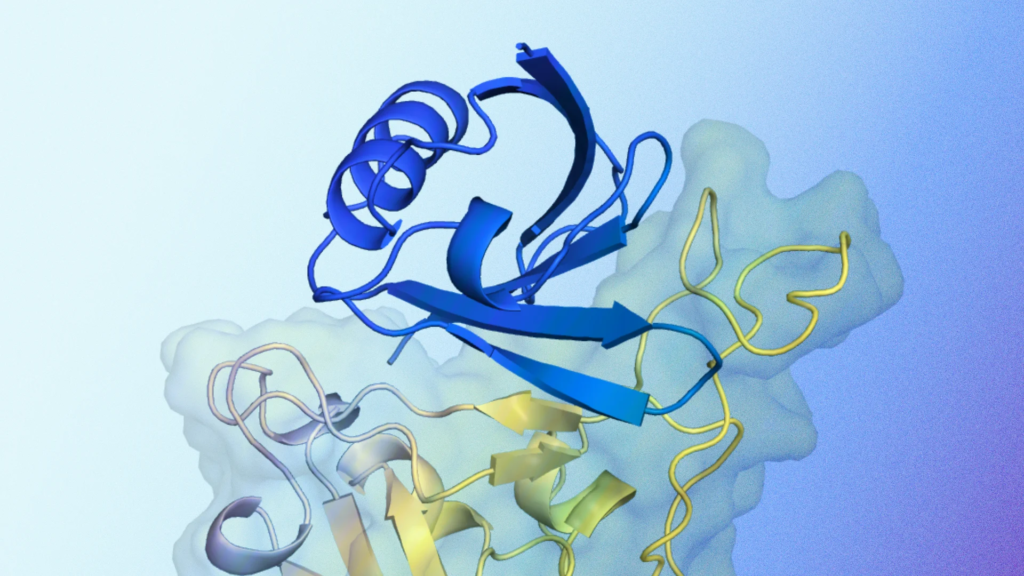AlphaProteo is an innovative AI system developed by Google DeepMind that focuses on designing novel proteins, specifically high-strength protein binders, for applications in biology and health research. This technology represents a significant advancement in the field of protein engineering, surpassing previous tools like AlphaFold, which primarily predicted protein structures rather than creating new proteins.
Key Features of AlphaProteo
Protein Design Capabilities
- Novel Protein Creation: AlphaProteo can generate proteins that bind effectively to specific target molecules, which is crucial for various biological processes. This capability allows researchers to manipulate protein interactions more directly than was previously possible.
- High Binding Affinity: The system has demonstrated binding affinities that are three to 300 times better than existing methods across multiple target proteins. This efficiency is particularly notable for proteins such as VEGF-A, which is linked to cancer and diabetes complications.
- Experimental Validation: AlphaProteo’s designs have been experimentally validated, confirming that the generated protein binders perform as predicted and have useful biological functions. For instance, some binders have been shown to prevent SARS-CoV-2 from infecting cells.
Applications in Research
- Drug Development: By designing proteins that can specifically bind to disease-related targets, AlphaProteo accelerates the drug discovery process, potentially leading to new treatments for various conditions.
- Disease Understanding and Diagnosis: The ability to create tailored protein binders enhances the understanding of disease mechanisms and improves diagnostic tools.
- Biosensors and Crop Resistance: The technology also has implications for developing biosensors and enhancing agricultural practices, such as increasing crop resistance to pests.
AlphaProteo compare to traditional methods in protein design
AlphaProteo represents a significant advancement in protein design compared to traditional methods. Here are the key differences:
Novel Protein Creation vs. Prediction: Traditional methods primarily focus on predicting protein structures, while AlphaProteo not only predicts but also creates novel proteins. This allows researchers to design specific protein binders tailored to target molecules, which is a capability that previous tools like AlphaFold do not possess.
Efficiency and Effectiveness
- Time and Labor: Traditional protein design is often labor-intensive, requiring multiple rounds of experimental testing and optimization. In contrast, AlphaProteo automates much of this process, significantly reducing the time and effort involved in developing new protein binders.
- Binding Affinity: AlphaProteo has demonstrated binding affinities that are 3 to 300 times better than existing methods across various target proteins. This substantial improvement in effectiveness allows for tighter and more specific binding, which is crucial for applications in drug development and disease treatment.
Experimental Validation
- Real-World Testing: The protein binders designed by AlphaProteo have been experimentally validated, confirming their ability to bind tightly to target proteins. This validation contrasts with traditional methods, which often involve a lengthy process of trial and error to achieve similar results.
Applications and Impact
- Broader Applications: The ability to design high-strength protein binders opens up new avenues for research in drug development, disease diagnosis, and even agricultural applications. Traditional methods may not effectively address the specific needs of these diverse fields, whereas AlphaProteo’s capabilities are tailored to meet these challenges head-on.

Potential Applications of AlphaProteo in drug development
AlphaProteo offers several promising applications in drug development:
- Targeted Drug Design: AlphaProteo can design novel protein binders that specifically interact with target proteins involved in diseases, such as VEGF-A, which is linked to cancer and diabetes complications. This targeted approach enhances the precision of drug development.
- Accelerated Discovery: By automating the protein design process, AlphaProteo significantly reduces the time and labor typically required in traditional methods, allowing researchers to rapidly generate and test new therapeutic candidates.
- Improved Binding Affinity: The AI system achieves binding affinities that are 3 to 300 times better than existing methods, which can lead to more effective drugs with fewer side effects due to more precise targeting.
- Experimental Validation: The protein binders created by AlphaProteo have been experimentally validated, ensuring that they perform as intended in biological systems, which is crucial for the development of reliable therapeutics.
- Broad Range of Applications: Beyond cancer, AlphaProteo’s capabilities extend to designing treatments for autoimmune diseases and viral infections, potentially leading to breakthroughs in how these conditions are managed.
- Development of Biosensors: The technology can also aid in creating biosensors that detect specific proteins, enhancing diagnostic capabilities and monitoring disease progression.
Challenges and Future Directions
While AlphaProteo shows remarkable potential, it also faces challenges. For example, it was unable to design effective binders for TNF-alpha, a protein associated with autoimmune diseases, highlighting the complexities involved in protein design. Google DeepMind is committed to improving AlphaProteo’s capabilities and addressing these challenging targets in the future.
In summary, AlphaProteo is set to revolutionize biological research and healthcare by providing powerful tools for protein design, thereby facilitating advancements in drug development, disease diagnosis, and more. Its ability to create novel protein binders represents a significant leap forward in the application of AI in biological sciences.











